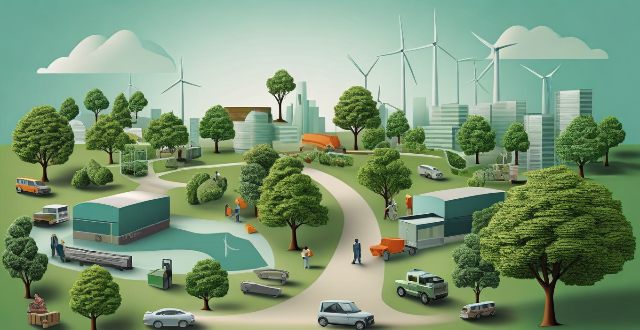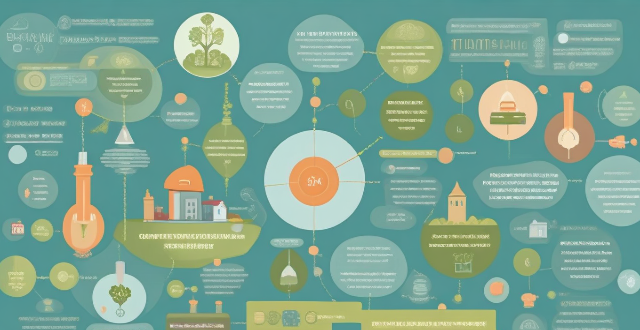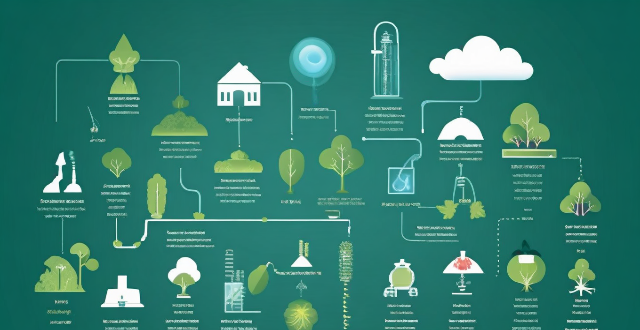Greenhouse Legislation

How effective has the recent climate change legislation been in reducing greenhouse gas emissions ?
The effectiveness of recent climate change legislation in reducing greenhouse gas emissions has been variable, with some regions and policies showing significant success while others face numerous barriers.

How has environmental legislation evolved over time ?
Environmental legislation has evolved over time, reflecting growing awareness of environmental issues. Early stages focused on preserving natural resources and conserving wildlife habitats, while post-World War II saw a shift towards pollution control through air and water quality regulations. The late 20th century introduced comprehensive environmental protection laws addressing multiple aspects of environmental degradation. Today's legislation prioritizes sustainable development and climate change mitigation, with a focus on public participation and transparency in decision-making processes.

Can environmental legislation effectively reduce pollution ?
Environmental legislation has the potential to effectively reduce pollution, but its success depends on various factors such as enforcement and compliance, public awareness and participation, technological innovation, political will, international cooperation, and economic considerations. Strong regulatory bodies, education campaigns, investment in clean technology, government prioritization of environmental protection, global collaboration, and balancing environmental goals with economic development are all crucial for the effectiveness of environmental legislation. Achieving lasting improvements in environmental quality requires ongoing effort from all sectors of society.

How does climate change legislation influence corporate sustainability practices ?
Climate change legislation significantly influences corporate sustainability practices by setting standards for environmental responsibility. It compels companies to report on their environmental impact, use market-based mechanisms like cap-and-trade systems, and consider tax incentives or penalties in their operations. This legislation also creates investor pressure through ESG criteria and shareholder resolutions, leading companies to enhance their sustainability practices to meet investor expectations. Additionally, it opens market opportunities for green products and services and encourages renewable energy adoption. Companies that comply with climate legislation can improve their brand image and stakeholder engagement. Furthermore, such legislation aids in risk management by requiring companies to assess physical and transition risks associated with climate change. Overall, climate change legislation is a driving force behind corporations adopting more sustainable practices.

What is the role of governments in regulating greenhouse gas emissions ?
Governments play a crucial role in regulating greenhouse gas emissions, which are primarily responsible for global warming and climate change. This regulation is essential to mitigate the adverse effects of these emissions on the environment and human health. Governments can regulate greenhouse gas emissions through legislation and policies, research and development, international cooperation, and public awareness and education. By taking action in these areas, governments can help mitigate the effects of climate change and protect the planet for future generations.

How does environmental legislation differ across countries ?
Environmental legislation varies across countries due to differences in economic development, political systems, cultural values, and environmental priorities. The legal framework for environmental protection ranges from comprehensive laws covering various issues to piecemeal legislation addressing specific problems. Enforcement mechanisms also differ, with some countries having strong regulatory bodies and others lacking institutional capacity or political will. Penalties and sanctions for non-compliance vary widely, as do opportunities for public participation in decision-making processes. International cooperation is crucial but varies in commitment and action among countries. Overall, these differences highlight the need for greater coordination and cooperation to address global environmental challenges effectively.

What role do citizens play in shaping environmental legislation ?
The text discusses the significant role that citizens play in shaping environmental legislation. It outlines various ways in which they can influence such legislation, including advocacy and public awareness, voting and elections, lobbying and policy influence, litigation and legal action, and grassroots movements and direct action. The text emphasizes that by working together, citizens can help create a more sustainable future for themselves and future generations.

What are the economic implications of enacting stringent climate change legislation ?
The article discusses the economic implications of stringent climate change legislation, which include job creation in renewable energy and green infrastructure sectors, potential increases in energy and food prices, new business opportunities in innovation and carbon trading, and investment in clean technology leading to economic growth. However, there are also short-term transition costs and job displacement issues. Despite these challenges, the long-term benefits such as improved air quality and increased resilience against natural disasters make the implementation of such legislation beneficial for future generations.

What challenges have been faced in the adoption and enforcement of climate change legislation ?
Climate change is a global issue that requires immediate attention and action. The adoption and enforcement of climate change legislation are crucial steps in mitigating the effects of climate change. However, several challenges have been faced in this process, including: 1. Lack of Political Will: Governments often prioritize short-term economic gains over long-term environmental sustainability, making it difficult to pass and implement effective climate policies. 2. Economic Barriers: The high cost associated with transitioning to clean energy sources can be a significant barrier to adopting and enforcing climate change legislation. Additionally, the shift towards clean energy can lead to job losses in traditional industries such as fossil fuel extraction and manufacturing. 3. Legal and Institutional Hurdles: Many countries lack comprehensive legal frameworks for addressing climate change, which can hinder the adoption and enforcement of effective climate policies. Weak enforcement mechanisms can also undermine the effectiveness of climate change legislation. 4. Public Awareness and Participation: Public awareness and understanding of climate change issues are essential for the successful adoption and enforcement of climate change legislation. However, many people still lack a basic understanding of the science behind climate change and its potential consequences. Active public participation is crucial for driving change and holding governments accountable for their actions on climate change. Addressing these challenges requires a concerted effort from governments, civil society organizations, businesses, and individuals worldwide. Only by working together can we hope to mitigate the effects of climate change and secure a sustainable future for all.

What are the key provisions of the latest climate change legislation ?
The latest climate change legislation is a comprehensive package of measures aimed at addressing the challenges posed by global warming and climate change. The key provisions include reduction of greenhouse gas emissions, adaptation to climate change impacts, international cooperation and leadership, just transition for workers and communities, and transparency and accountability.

How can we ensure compliance with environmental legislation ?
Ensuring compliance with environmental legislation is crucial for protecting the planet and its inhabitants, and can be achieved through education and training of stakeholders, developing and implementing policies, monitoring and reporting performance, and collaborating with stakeholders.

How does climate legislation vary across different countries ?
Climate legislation varies across countries due to factors such as government involvement, emphasis on different sectors, stringency of emission targets, and international cooperation. Some countries focus on reducing emissions from transportation or energy production, while others prioritize agriculture or waste management. The level of government involvement also differs, with some countries relying more on local or regional authorities. Additionally, the stringency of emission targets set by different countries varies widely. International cooperation and compliance with global climate agreements also play a role in shaping climate legislation across countries.

What is the greenhouse effect ?
The greenhouse effect is a natural process that warms the Earth's surface through the trapping of heat by greenhouse gases. These gases include carbon dioxide (CO2), methane (CH4), and nitrous oxide (N2O), which are released by various human activities and natural processes. The greenhouse effect is essential for life on Earth, but human-induced enhancement of this effect has led to global warming and associated environmental issues.

What role do scientists play in shaping climate change legislation ?
Scientists play a crucial role in shaping climate change legislation by providing evidence-based research, influencing policy development, and educating the public and raising awareness about the issue. Their expertise helps policymakers understand the severity and potential consequences of climate change, identify patterns and predict future scenarios, assess impacts on ecosystems and human health, advise on effective strategies for addressing climate change, testify before government bodies, participate in public forums and debates, publish scientific papers and reports, collaborate with media outlets, and participate in educational programs and workshops.

How is climate change legislation being implemented at the local government level ?
Local governments are implementing climate change legislation through various strategies, including adopting green building codes, promoting renewable energy development, implementing transit-oriented development policies, investing in infrastructure resilience, and promoting sustainable land use practices. These efforts aim to reduce greenhouse gas emissions, prepare for the impacts of climate change, and create more resilient and sustainable communities.

How does the greenhouse effect work ?
The greenhouse effect is a natural process essential for life on Earth, where certain gases trap the sun's energy, warming the planet. Human activities have increased these gases' concentration, leading to an enhanced greenhouse effect and global warming. The process involves sunlight absorption, re-emission as infrared radiation, trapping by greenhouse gases, and planetary warming. Human impact includes increased emissions from burning fossil fuels and deforestation, leading to rising temperatures, extreme weather events, sea level rise, and habitat loss. Urgent action is needed to mitigate these environmental challenges.

How does climate change legislation address the concerns of environmental justice and equity ?
Climate change legislation should address environmental justice and equity by prioritizing vulnerable communities, promoting participatory decision-making, ensuring access to clean energy and sustainable practices, and addressing environmental health disparities. This will create more equitable and effective climate policies for all communities.

How can environmental legislation be improved to better protect the planet ?
Environmental legislation is crucial for the planet's health and sustainable development. To improve it, enforcement mechanisms should be strengthened with more funding, stricter penalties, and public participation. Regulations should be updated regularly based on scientific advancements, adopting an interdisciplinary approach. Sustainable practices should be promoted through incentives for green technology, eco-labeling programs, and green procurement policies. Protecting vulnerable ecosystems requires expanding protected areas, funding restoration projects, and strengthening species conservation laws. Integrating climate change mitigation involves carbon pricing, renewable energy targets, and adaptation strategies. International cooperation should be enhanced through global agreements, shared resource management, and technology transfer. Communities should be educated and empowered through environmental education, community-based programs, and capacity building.

Are there any international efforts to harmonize climate change legislation across different countries ?
International efforts are underway to harmonize climate change legislation across different countries, including the United Nations Framework Convention on Climate Change (UNFCCC), International Emissions Trading Association (IETA), Carbon Pricing Leadership Coalition (CPLC), and Global Green Growth Institute (GGGI). These initiatives aim to create a unified approach to addressing the global challenges posed by climate change through regular meetings, national communications, emissions trading standards, carbon pricing policies, and green growth strategies.

How do greenhouse gases contribute to climate change ?
This text explains the role of greenhouse gases in climate change and how human activities contribute to excessive levels of these gases. It outlines various sources of greenhouse gases such as fossil fuel combustion, deforestation, agriculture, industrial processes, and waste management. The impacts of increased greenhouse gases on the environment are discussed, including global warming, sea level rise, extreme weather events, ocean acidification, and biodiversity loss. Finally, the text suggests strategies for mitigating greenhouse gas emissions, such as reducing fossil fuel use, enhancing energy efficiency, promoting renewable fuels, reforestation, sustainable agriculture practices, carbon capture, and policy initiatives.

What are the causes of the greenhouse effect ?
In this article, we explore the natural and human-intensified causes of the greenhouse effect and its potential consequences. The greenhouse effect is a process where certain atmospheric gases trap heat from the sun, warming the Earth's surface. Human activities such as burning fossil fuels, deforestation, and agricultural practices have increased the levels of these gases, leading to an intensified greenhouse effect and contributing to global warming. The consequences of an intensified greenhouse effect include rising temperatures, melting ice caps and glaciers, extreme weather events, ecosystem disruption, and impacts on human health. To address these challenges, collective action is needed to reduce greenhouse gas emissions and transition to sustainable practices.

How do greenhouse gas emissions affect climate change ?
Greenhouse gas emissions, including carbon dioxide (Greenhouse gas emissions, including carbon dioxide (e (CH4), trap heat in the Earth's atmosphere, leading to an increase in global temperatures. This process is known as the greenhouse effect. Human activities have increased the concentration of these gases, enhancing the greenhouse effect and causing global warming. The enhanced greenhouse effect leads to various effects such as global warming, ocean acidification, impact on ecosystems, and human health and well-being. To mitigate these effects, it is essential to reduce our carbon footprint by adopting sustainable practices such as using renewable energy sources, improving energy efficiency, protecting natural habitats, promoting sustainable agriculture practices, and encouraging eco-friendly habits.

How does the greenhouse effect impact ocean levels ?
The greenhouse effect, essential for Earth's habitThe greenhouse effect, essential for Earth's habittensified by human activities like has been intensified by human activities like burning fossil fuels and deforestation. This amplified effect is causing global warming, which leads to rising ocean levels through melting polar ice caps and thermal expansion of seawater. Changes in precipitation patterns also indirectly affect ocean levels by redistributing water. Addressing the causes of the enhanced greenhouse effect is vital to mitigate these impacts and protect the planet's future.

What impact does climate change legislation have on renewable energy development ?
Climate change legislation significantly influences renewable energy development by providing financial incentives, establishing mandated targets, supporting research and infrastructure, creating consumer awareness, fostering international cooperation, implementing regulations, setting environmental standards, and promoting economic growth through job creation. These measures collectively drive the energy sector towards sustainability and a low-carbon future.

How does the greenhouse effect affect weather patterns ?
The greenhouse effect is a natural process that maintains Earth's warm temperatures, making life possible. However, human activities like burning fossil fuels and deforestation have increased the concentration of greenhouse gases, leading to global warming. This enhanced greenhouse effect affects weather patterns by causing higher global temperatures, changes in precipitation patterns, extreme weather events, disruption of seasonal patterns, and changes in ocean currents. Addressing this issue requires reducing greenhouse gas emissions and adapting to the changing climate.

What are the consequences of the greenhouse effect ?
The enhanced greenhouse effect, caused by human activities, has led to rising global temperatures, changes in precipitation patterns, ocean acidification, impacts on biodiversity, health implications, and economic impacts. These consequences affect various aspects of life on Earth and require action to reduce greenhouse gas emissions and mitigate the effects of climate change.

How do greenhouse gas emissions affect human health ?
The text discusses the significant impact of greenhouse gas emissions on human health, highlighting four main areas: air quality, climate change, food security, and waterborne diseases. It provides examples of health problems caused by each of these factors, such as respiratory issues from poor air quality, heat-related illnesses from climate change, malnutrition from food insecurity, and diseases like cholera from waterborne pathogens. The article emphasizes the importance of reducing greenhouse gas emissions to protect public health.

What are the primary sources of greenhouse gas emissions ?
Greenhouse gas emissions are a major contributor to global warming and climate change, with the primary sources being fossil fuels, deforestation, industrial processes, and agriculture. Fossil fuels release carbon dioxide into the atmosphere when burned, while deforestation releases stored carbon from trees. Industrial processes often use fossil fuels or other materials that produce CO2 and other greenhouse gases like methane and nitrous oxide. Agriculture also contributes to emissions through livestock farming, fertilizer use, and changes in land use leading to deforestation and soil degradation.

How does deforestation contribute to the greenhouse effect ?
Deforestation contributes to the greenhouse effect by releasing large amounts of carbon dioxide, reducing oxygen levels and disrupting ecosystems.